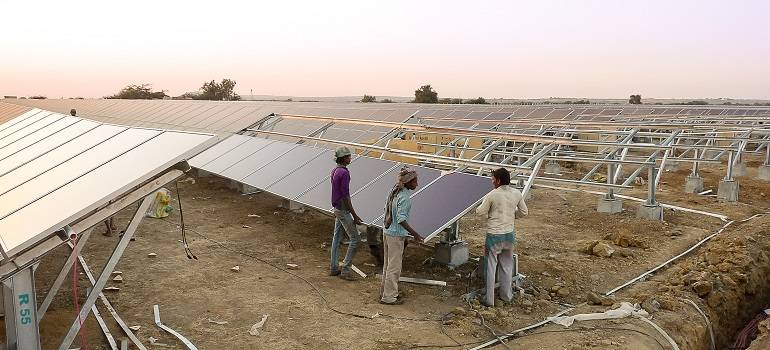
After witnessing tepid response in previous auctions, Solar Energy Corporation of India (SECI) has raised the ceiling price by 10 paise per unit of power it had set for two recent solar tenders to attract more developers to bid for the projects.
The government has now invited fresh bids for hybrid projects, which require solar and wind power generating facilities to be set up at the same site, and manufacturing-linked solar projects, officials said.
An official from MNRE speaking to ET said “We have taken rising interest rates and other factors into consideration, and hence raised the ceiling price.” He added “We hope this will attract better participation.”
The ceiling tariff for hybrid projects has now been fixed at Rs 2.70 per unit, while that for manufacturing-linked solar projects has been raised to Rs 2.85 per unit.
However, Developers looks non-committed. “With the decline of the rupee, and rising interest rates, the 10 paise hike will be neutralised,” a developer told ET on condition of anonymity.
SECI had announced its first large-scale hybrid tender in May. It had set the ceiling tariff at Rs 2.60 per unit, but developer response was so poor that the auction has been postponed six times.
Now it has raised the ceiling tariff to Rs 2.70 per unit, and has also reduced the size of the auction to 1200 MW from 2500 MW in May. The deadline for techno-commercial bids is set for November 20.
The government wants to encourage hybrid projects as they save on both land costs and transmission facilities.
Similarly, SECI had come out with its first manufacturing-linked solar tender in July, auctioning 10,000 MW linked to 3,000 MW of solar equipment manufacturing.
Those bidding for projects had to commit to manufacturing 30% of the project size bid for. That means, for the minimum bid set at 2000 MW, a developer required to set up 600 MW of equipment manufacturing capacity as well.
Currently, around 90% of solar panels and modules used in Indian projects are imported from China and Malaysia, and the government is keen to push local manufacturing.
The maximum tariff was set at Rs 2.75 per unit, but developers hardly responded to it, leading to the bid submission deadline being postponed four times.
The tariff has now been increased to Rs 2.85 per unit, and the deadline for techno-commercial bids set for November 19.
Source: ET

